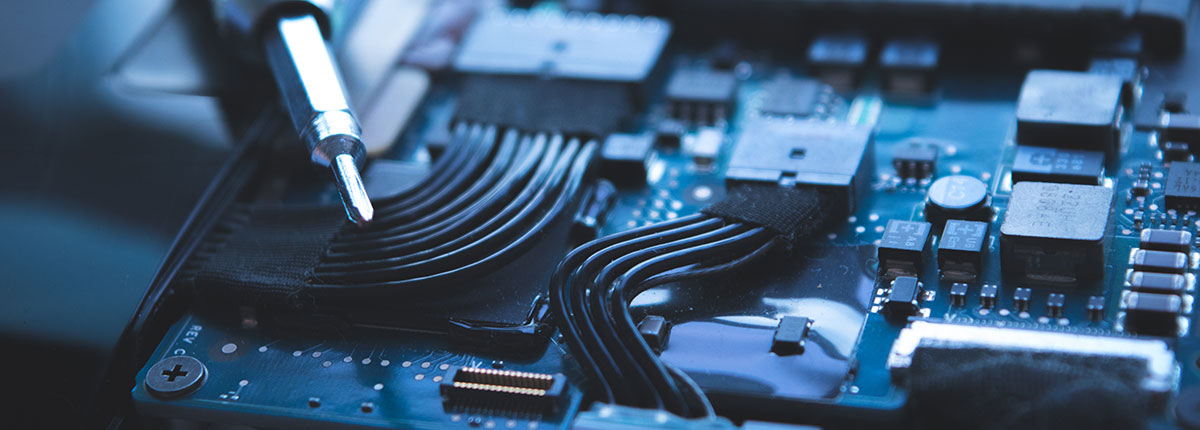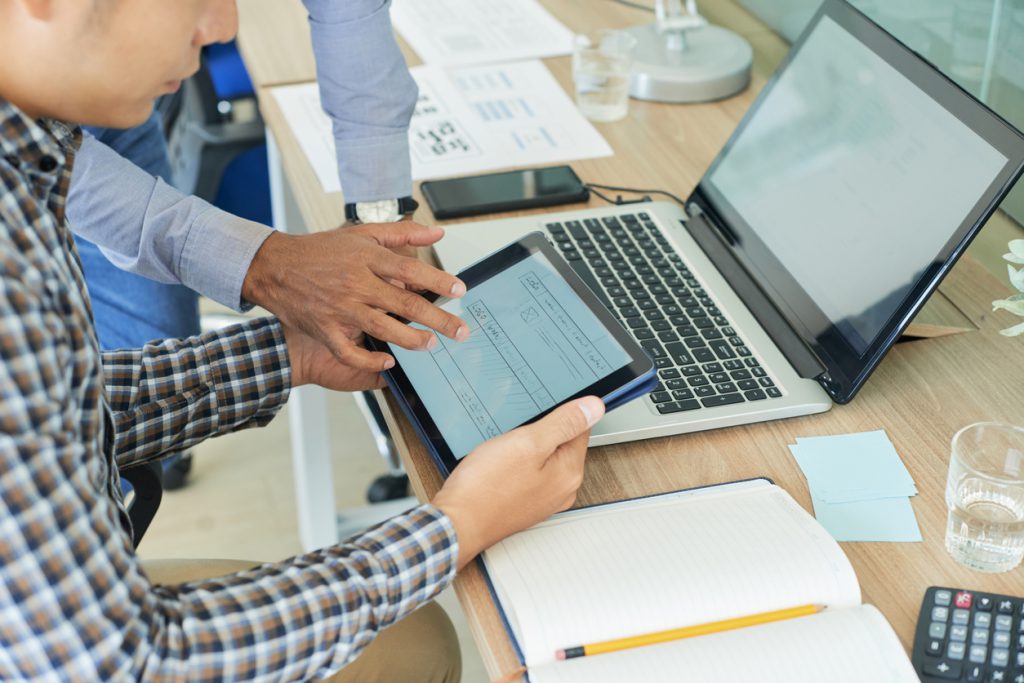HARDWARE
Very few businesses have a dedicated IT Department, however, they still require many of the needs that a large organisation.
One thing a business cannot operate without is computers. Computers are made up of lots of components and without the correct hardware, your software may not run efficiently or at all. It is important to consider both when making decisions about your IT systems, as this can affect the way you work, your productivity and your business’ bottom line However, there are four elements in particular that are key to understanding how a computer works and how effective it will be for you.
- Processor: The brain of the computer and responsible for every single action. Speed is the key performance indicator and it is measured in GHz. Modern processors also have cores (separate brains) that help them process multiple tasks.
- RAM: RAM (Random Access Memory) is often referred to simply as memory and is measured in gigabytes. It speeds up tasks by making recently used files readily accessible to the processor. The more RAM you have, the more files your processor has access to at once.
- Hard Drive: Files and programs are stored on a computer’s hard drive. As with RAM hard drive size is measured in gigabytes. They come as slower, larger Hard Drives (HDD) smaller and faster Solid State Drives (SSD).
- Graphics Card: A Graphics Card (GPU) determines how well your PC can handle things like playing games and editing home movies. Graphics Cards also use Memory (like the RAM in your computer) that is measured in gigabytes
Types of Hardware
Desktops & All-in-Ones
Desktops and all-in-one computers are reliable, typically long-lasting and can perform an array of tasks. Some of these devices are fitted with the best components so you can run practically any software.
- Standard desktops require a monitor to work properly, while an all-in-one desktop contains the computer components in the area behind the screen.
- All-in-one computers have everything you need right out of the box, but are often more expensive than desktops. Desktops allow for more flexibility in mixing and matching parts if you have specific needs.
- Choose a computer that matches how you intend to use it. If it is only for occasional use, or for light office tasks and emailing, you could save by opting for a computer with a dual core processor and 4GB of RAM.
Monitors
A monitor is the screen which you use to view what is happening on your computer. They come in a variety of sizes as well as varying image quality, much like TVs.
- If you plan to purchase a standard desktop then you require a monitor; an all-in-one desktop already has a monitor built in and you do not need another, though many have the ability to run a second monitor through a video output like HDMI or Display Port.
- Larger monitors take up more desk space, but typically have improved picture quality and higher resolutions. Smaller monitors are a more economical choice if you only use your computer occasionally or are tight on space.
- Consider connectivity when purchasing a monitor. If you own a laptop you want to connect, or wish to plug in USB devices, ensure the monitor has the appropriate connection ports first.
Laptops
Laptops feature the functionality of a desktop computer, including keyboard and mouse, in a portable device. With a laptop you can easily take your work with you out and about and are not constrained to your office desk.
- If portability is important, especially if you plan to take your laptop outside the house, consider weight, size and battery life. A 13″ laptop weighing 1kg will be a far better option than a 15.6″ device.
- As with any computer, higher processing power comes at a premium, so ensure you are buying to match your requirements. If you’re not using the latest software then avoid an i7 processor and stick with an i5 or equivalent.
- Many laptops sacrifice USB and display ports in order to reduce weight and size. Ensure you’re shopping for a computer that matches how you plan to use it.
2-in-1s
2-in-1 devices feature a touchscreen interface and just like your laptop or desktop PC they can run Windows operating system. They have become so advanced that many users are now able to employ them as their primary computer.
- Establish whether you need all the benefits of a Laptop or Desktop but require a more versatile form-factor, many 2-in-1 devices have a detachable keyboard and can be used in Tablet Mode utilising the touchscreen and saving on space when you are on the go.
- Choose a 2-in-1 with a screen that suits your usage habits. Larger screens are great for complex tasks while smaller displays mean unparalleled portability.
Mobile Devices
Mobile devices are essential if you are constantly on-the-go. As it is called, a mobile device will allow you to be mobile with your work and give you flexibility to be able to work wherever you are and many business owners find that the versatility of a mobile device compensates for the upfront and ongoing costs you will face.
When it comes to mobile devices, there are three main systems businesses have to choose from:
- iOS – Owned by Apple, offers reliable products and a wide number of apps for your business.
- Android – Owned by Google, you will find a wide variety of devices suitable for any need.
- Windows Phone – Owned by Microsoft, these devices are most suitable for offices that utilize Microsoft’s other services. This is largely due in part to the deep integration between systems.
Printers
Having a good printer is crucial to the smooth running of your business – even if your business is one that encourages a paper free work space. A durable laser-jet printer will save you energy and frustration and should include a scanner as well as photocopy and fax functions.
Check out the Small Business Digital Resources page for more information.









